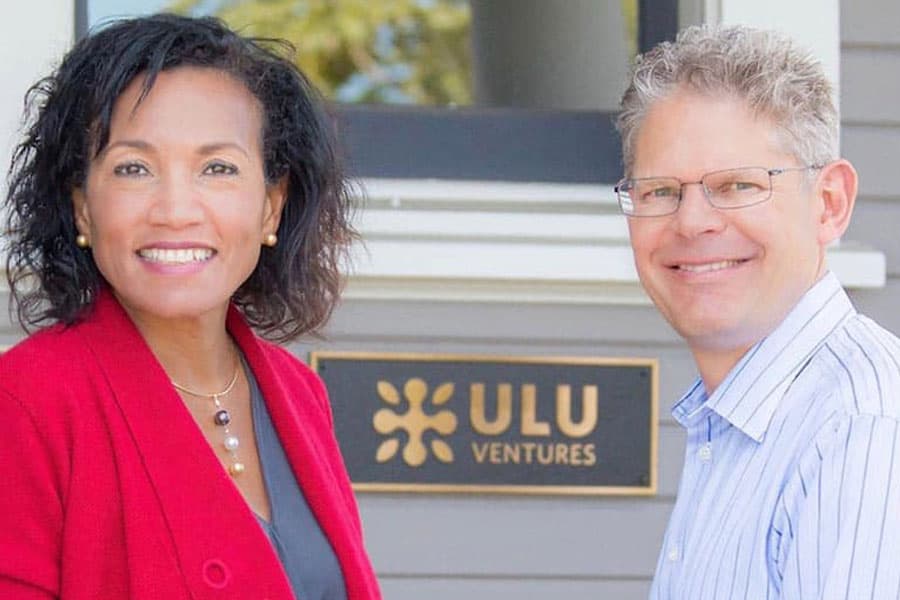Such partnerships can work for investors as well as the couple
Married couples obviously love each other, but ask them if they want to work together and you’ll get an eye roll from a lot of them. It’s tough enough to agree on where to have dinner, let alone where to take your jointly owned business. We have managed to cultivate a strong marriage and a healthy partnership while leading our own venture firm.
We are a mixed-race couple, of Dutch and Latina heritage, raised Protestant and Catholic, with different linguistic traditions and socioeconomic backgrounds. We met as post-grad students at Stanford University. Many of our Ulu Venture clients like our close family bond, the personal alignment and commitment we share from building a family and the controls we leverage to keep our differences from turning into catastrophes.
But in Silicon Valley, where every investor hopes to be in on the next startup to attain a $1 billion valuation, some balk at investing with a married couple, perhaps fearful that a good marriage in California is rarer than a unicorn. We know that from personal and professional experience. In 1997, we married and co-founded (with three other colleagues) enterprise software company Outcomes Software. However, Miriam left to become the second attorney at Google when prospective Series A investors said they would not fund a husband/wife team.
After Miriam left Google, we took a second run at working together. This time we were successful, founding Ulu Ventures in 2008. Since then, we have made more than 95 investments together. We both work on fundraising, sourcing deals, selecting investments and supporting our startups. We manage concerns about us being a husband/wife team by establishing a systematic decision-making process to ensure that our interests — economic, professional and personal — are truly aligned. Non-married VCs often lack mechanisms to surface and resolve differences and frequently have conflicting agendas, so maybe there is advice here they can use, too. After all, forming a VC partnership is often described as “getting married!”
Investors have told us they have four main concerns about working with a couple:
- What would happen in a messy divorce?
- Are you really the best people to be working together?
- Can you grow your firm or would another partner feel like a third wheel?
- Can you have a professional disagreement without it getting personal?
These are valid concerns, but we’ve found ways to solve them. They include methods that are largely applicable to married couples working together in many fields. We’ve all seen friends go through messy divorces and the idea of our wealth being caught up in such a nightmare is a level of risk no one wants. Investors worry about the longevity of a marriage because funds make investments that take 10 to 15 years to pay off.
In our case, we have been married for more than 20 years and have children together and odds-makers say the chance of divorce in the next five years are less than 1 percent. Whew! Seriously, to allay those concerns our LP agreement specifies what would happen in a “divorce.” New investments would freeze until any disputes were legally resolved.
In California, that’s straightforward because assets are split 50/50. While married couples have made a lifelong commitment, that’s not the case in other partnerships, so a breakup among regular VCs can be much more fractious. Indeed, the VC community is littered with partnerships where people grew to hate each other but grit it out together waiting for their payout, the Sand Hill Road equivalent of a loveless, sham marriage.
To ensure the dynamics of our marriage don’t impact decisions, we have created a disciplined process to assess the risk and return of every investment. As a couple, our economic interests are aligned, split 50/50. That’s not always the case among VC partners, where firms can payout differently — some pay all partners equally, some favor seniority, others performance, and some blend those considerations.
Married couples where both partners work also tend to be professionally aligned with the same approach and complimentary skills, often part of the original attraction and the reason why they work well as a couple in both environments. A tight personal and professional alignment really helps. For example, knowing when we both need to work late and should skip our child’s water polo game. And, when one of us needs time off to be with a sick relative or to attend to a personal emergency, the other spouse/partner can take up the slack.
Even with all these precautions, we also invest mindfully in our marriage. That means making time for weekly date night, a weekend away together without the kids four times a year, and an annual week-long vacation as a couple. We work with coaches to refine our teamwork skills and to address challenges arising from clashes between our personal and professional needs. We also have plenty of alone time.
We have separate offices in the same building, so we can each shut the door and be alone. We rarely commute to work together because we have so many meetings in different locations. And we try to rarely discuss work at home. However, amid an exciting deal we both tend to work around the clock, blurring the lines between home and work.
Finally, we added veteran VC Dave Strohm, a partner with Greylock Partners, as a strategic adviser to Ulu, giving us an in-house elder statesman to be a kind of ombudsman on behalf of clients or to help inform potential disputes between us, if necessary. Working together as VCs might be unusual, but it is reassuring to make the case that such partnerships can really work for the investors and for the couple as well.






